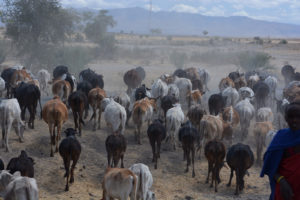They come to most people who’ve lived life awhile. Periods we label roller-coaster seasons.With jet lag and the landscapes of Africa behind us Ann and I pondered how life might look going forward. Her mother’s passing from this world was surely nearing as leukemia would bring its final assault. My father’s homegoing, too, drew closer in by the day.
Meanwhile, the peal of wedding bells lay immediately ahead.
My wife, smiling broadly, yielded a sigh of happy relief. The wedding gown project for her firstborn had come together well. How beautiful Julie was as she took my arm at the head of the church’s center aisle.
“Who gives this woman to be married to this man?” Darrell Stinnett – the groom’s father and officiating minister – smiled my direction. The two weeks since landing at Will Rogers International had raced by. In mere minutes I would enter a long-established fraternity – father of a bride.
Returning to Okmulgee, the land of my upbringing, I resumed my vigil at Dad’s bedside. His breathing grew more labored. One late morning I stepped outdoors and took in the surroundings of the old home place. My son’s voice came from the front porch, “Dad, can you come?”
Slipping in to pay a visit at his grandfather’s bedside, Scott was quick to witness the change. It was September 1, 1992, exactly a month short of his 80th birthday. Grandpa was gone.
Crossing life’s final divide – the temporal to the hereafter – Dad had run his course. And finished well.
“To be absent from the body is to be present with the Lord”.*
© 2023 Jerry Lout *2 Corinthians 5:8



